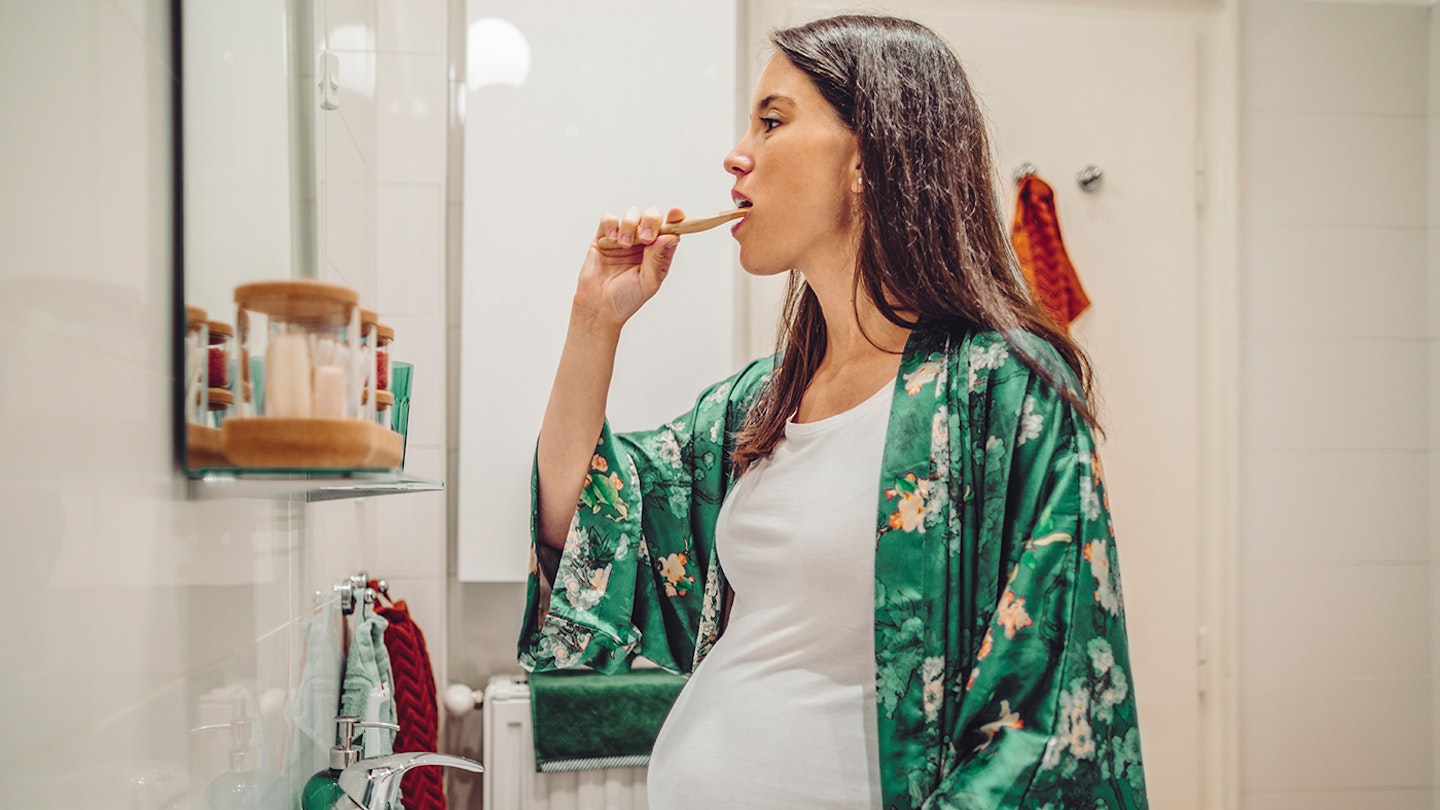It’s important to up your oral care during pregnancy as your hormones may cause you to have inflamed or bleeding gums. However, a lesser-known symptom you may also suffer from during pregnancy is getting a dry mouth.
“When you’re pregnant you breathe a little more heavily and develop sleep aponea (which can cause open-mouth breathing), both leading to your mouth becoming dry,” says Dr Safa Al-Naher, Principal dentist and director of Serene Dental.
You’ll also find yourself becoming a lot more thirsty during pregnancy, as your body requires more water to support your baby’s development. It’s important to make sure you’re drinking plenty, otherwise this may also cause you to have a dry mouth.
“When you're pregnant you getfree NHS dental cover so make the most of that,” says Dr Safa. “Otherwise, schedule to see your normal dentist a little more regularly just for cleans, it's not dangerous but hygiene appointments are really important during pregnancy.”
Dry mouth in pregnancy symptoms
If you’re suffering from a dry mouth in pregnancy, it may also feel a little like:
• A sore throat
• Having trouble swallowing
• Dryness in your nose
How to relieve a dry mouth during pregnancy
While we can’t promise these will completely cure your dry mouth, according to the NHS some of these may help:
• Suck on ice cubes (be careful not to swallow!) or ice lollies
• Keep yourself hydrated and drink plenty of water or sugar-free drinks
• Avoid carbonated drinks
• Chew on sugar-free gum
Further oral-care during pregnancy
Due to the high levels of hormones rushing round in your body during pregnancy makes you more susceptible to gum disease caused by plaque, says Dr Safa. “The best thing you can do is continue with your normal oral health and step it up a little bit, for example brushing with an electric toothbrush with soft bristles twice a day, using interdental brushes or some form of cleaning in-between your teeth once a day. If there is no plaque you will not have gum disease, so removing plaque is the best way of avoiding it.”
Another thing you may suffer from is bleeding or inflamed gums. “This is called gingivitis,” says Dr Safa, “that's just the reaction to the normal levels of plaque you've got, which just becomes exaggerated when you're pregnant.”
Morning sickness and nausea may also lead to you eating more often. This is absolutely fine and completely normal, but Dr Safa advises to avoid foods with sugar or acid in them.
“Keep those foods to your meal times and when it comes to snacks it's best to eat something with no sugar in it, like cheese or vegetables,” she says. “If you do have morning sickness it's important not to brush your teeth straight away as your teeth are soft from the stomach acids. Rinsing your mouth with water or a high level fluoride mouthwash can help, then wait around 40 minutes after being sick to brush your teeth.”
